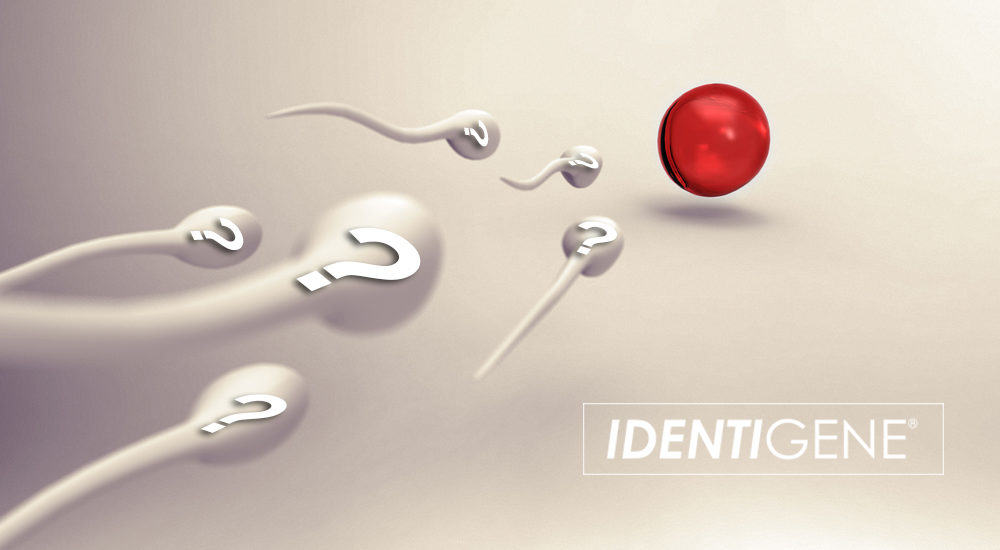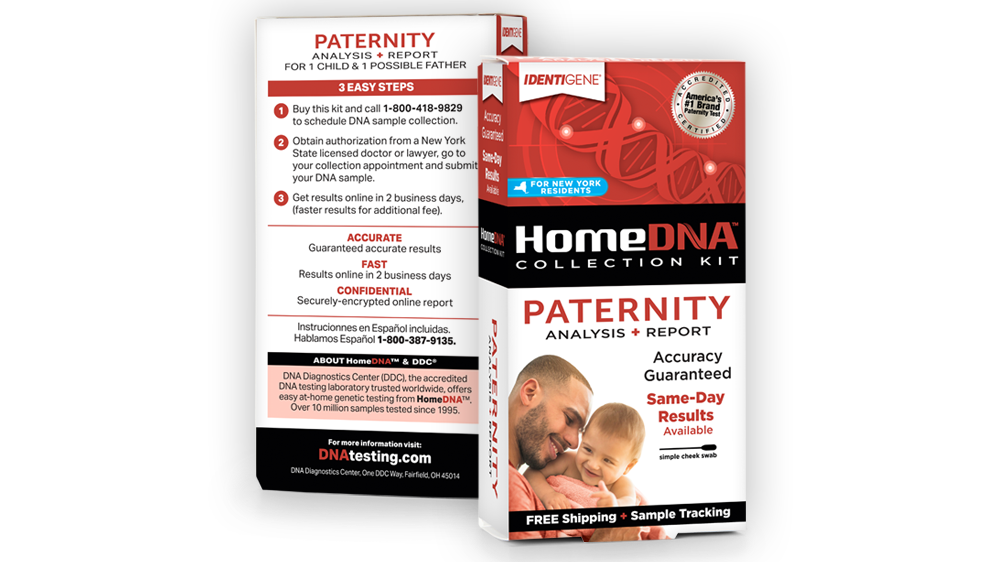Who am I?
As a trusted and reputable DNA testing company, our scientists perform thousands of paternity and other relationship tests each year. Even with the high number of paternity test and other types of analyses we run, we are careful to remember that behind every results report is a family seeking answers to some of life’s most important questions:
- Am I the father?
- Is this my grandchild?
- Is the man who raised me my biological father?
- Who am I?
The specific reasons for getting tests are as different as the people who request them: medical history, immigration, child support, custody, curiosity, or just peace of mind. Each situation is unique, which is why the our expert client-support specialists are ready to listen and then help determine which relationship test is right for you. After all, a straight paternity test kit you can get at the store may not be right for your situation. Here’s a quick overview of the different types of relationship tests, along with the advantages and possible disadvantages of each.
Paternity Testing
If your question is one of direct paternity (Is this my child? Is this person the father of the child?), then a straight paternity test is the simplest, most cost-effective choice. It requires the child’s DNA, along with the alleged father’s. Each HomeDNA IDENTIGENE paternity kit comes with enough cheek swabs to also test the mother, and although her participation is not a must, we highly recommend that she send in her samples too in order to safeguard against inconclusive results.
Peace-of-mind Paternity Test
For a peace-of-mind test, you just pick up a kit online or at your local retailer. Samples can be collected at home and you send them directly to the lab. Samples can be sent from multiple locations, if one or more participants live in a different area. This is the test you want to do if you’re just using the results for your own information or to put your mind at ease.
Advantages:- Samples can be collected in private using an at-home kit.
- Lab fees are low.
- Testing results are not court-admissible. This is because participants are collecting and submitting their own samples, and therefore the court cannot determine if participants are who they say they are
- If the potential father is not willing to participate or cannot for whatever reason, then more expensive family-reconstruction testing is required (see below)
- This type of testing is not currently an option for New York residents. New Yorkers can purchase a kit at the store, but (per New York law) testing must be requested by a lawyer or physician. A Legal Paternity test procedure must be followed (see below)
Legal Paternity Test
If you are going through a paternity-related court process or anticipate that you may need to use results in court at some point in the future, then a legal paternity test is right for you. With this type of testing, an independent third-party DNA Collector is responsible for collecting (or supervising collection of) DNA samples. The Collector checks ID to verify identity and personally sends samples to the lab. Once at the lab, the testing process is exactly the same as it is for a peace-of-mind test.
Advantages:- There are qualified Collectors all over the country
- The process itself is simple
- DNA test results are court-admissible
- There are additional fees associated with the collections process
Immigration Paternity Test
An immigration paternity test is usually conducted if an individual is seeking a visa, passport, or citizenship. When no other credible proof of relationship exists, such as a birth certificate, school record, etc, then a DNA test may be used to prove a biological relationship.
Advantages:- This DNA test, if done correctly, is internationally-recognized as proof of a biological relationship
- Because this test follows the same process as a legal-paternity one, you can be sure all participants’ samples are verified
- It is a lengthier process than a peace-of-mind test
- As with most immigration matters, it is necessary to go through red tape. Fortunately, when you work with an accredited lab like IDENTIGENE, a lot of the legwork is done for you
Family Reconstruction Testing
If a paternity test is not possible, either because the potential father has passed away, cannot participate or chooses not to participate, family reconstruction testing can be done to help determine paternity or to establish other biological relationships (grandparent, aunt, etc.).
Some things to keep in mind:
The lab fee for family reconstruction testing is more than the fee for a straight paternity test because much more extensive analysis is required.
- Depending on who is participating in the testing, results may be inconclusive
- In any family reconstruction test, the rule is: The more participants are involved, the more likely you are to get a conclusive result. The cost is higher, but it’s well worth it!
DNA Testing for Grandparents
If a paternity test is not an option, the next best choice is to test a child with the potential father’s biological parents and the child’s mother. Both grandparents’ participation is optimal, but if only one grandparent is available, a percentage of probability can still be established.
LEARN MOREDNA Testing for Siblings
You can test a child in question with the known child of a potential father. There are different types of testing depending on whether they are full or half siblings.
DNA Testing for Aunts/Uncles
Testing for an aunt or uncle involves testing the child in question with a full sibling of the potential father.
The Bottom Line
A straight paternity test (either peace-of-mind or legal) with child, potential father, and mother as participants is definitely the best way to confidently determine paternity. It’s also the most affordable test. If a potential father is initially unwilling to provide a sample, we highly recommend talking it through with him. Ultimately, knowing the truth is best for everyone involved.
Follow us on Facebook and Twitter! If you have questions about paternity tests or other DNA testing services, please contact our Client Support Center at 888-404-4363, Mon-Fri from 9 AM to 6 PM Eastern Time. Our friendly, expert representatives are ready and happy to help. Get answers anytime by visiting our Help Center.









